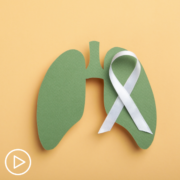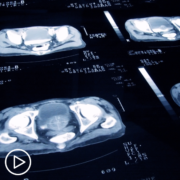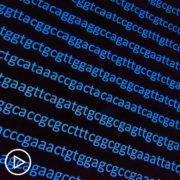The Latest Lung Cancer Research Updates From ASCO 2022
The Latest Lung Cancer Research Updates From ASCO 2022 from Patient Empowerment Network on Vimeo.
Dr. Tejas Patil from the University of Colorado Cancer Center shares the latest news in lung cancer research and treatment from the 2022 American Society of Clinical Oncology (ASCO) Annual Meeting, including an update on immunotherapy.
Dr. Tejas Patil is an academic thoracic oncologist at the University of Colorado Cancer Center focused on targeted therapies and novel biomarkers in lung cancer. Learn more about Dr. Patil, here.
See More From INSIST! Lung Cancer
Related Resources:

|
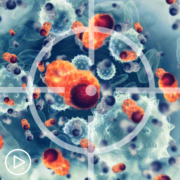
|
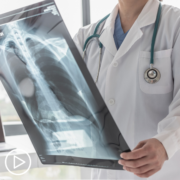
|
Transcript:
Katherine:
Researchers came together earlier this summer at the annual ASCO meeting. Were there highlights from the meeting that lung cancer patients should know about?
Dr. Patil:
Right. So, the ASCO ’22 meeting this year had some really interesting publications. So, for me, the key publications that I thought were kind of interesting from ASCO ’22, 2022, one was a publication looking at the role of immunotherapy in patients who are – have a very high PD-L1 expression, so greater than 50 percent. And there’s –
Katherine:
Reminds us what PDL is.
Dr. Patil:
Oh, yes, of course. So, PD-L1 is a biomarker. It’s a predictive biomarker that lets us know whether some patients will benefit from immunotherapy. It’s also prognostic because if patients have a high PD-L1 score, they tend to do better with immunotherapy than patients who have a low PD-L1 score.
Katherine:
Okay.
Dr. Patil:
Now the interesting data that was presented was a pooled analysis of all the immunotherapy trials to date. And there’s been this ongoing question in lung cancer as to whether patients should get chemo with immunotherapy or whether they should just get immune therapy alone.
And this study showed that if you have a very high PD-L1 score, it is potentially possible to just use immune therapy and forgo chemotherapy. And I thought that was a very interesting analysis.
There’s also several other papers that came out as well. Mostly there was a lot of interest in something called circulating tumor DNA. So, let me just take a step back. This is a type of molecule that can be detected in the blood that can help determine whether cancer is present in your blood or not. And there was a lot of publications at ASCO looking at using a concept called minimal residual disease.
So, when we treat patients with early-stage lung cancer, a big question is how do we know they’re cured or not cured? And a lot of abstracts and publications this ASCO were looking at this concept of minimal residual disease. So, if I can detect some cancer in your blood after you’ve had cured curative therapies, we’re – we have a problem because there’s still cancer around and we’re detecting it in the blood.
And I think this type of approach is going to really inform how we think about early-stage lung cancer management in the future.





